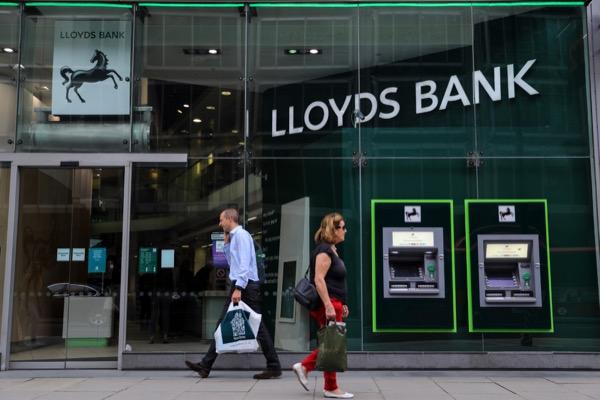Lloyds share price: banking on interest rate rises?
Lloyds shares are the most highly traded in the FTSE 100. With interest rate rises imminent amidst record-breaking inflation, is the UK bank stock set to soar?
 Source: Bloomberg
Source: Bloomberg
The Lloyds (LON: LLOY) share price hit 64p prior to the covid-19 pandemic-induced mini-crash, which saw it fall to a low of 25p by September 2020. But it recovered to 48p in 2021 and was highlighted as a stock to watch this month.
And true to form, it’s had a volatile start in 2022, hitting 55p on 17 January, before falling to 49p at the beginning of the week. And at 53p right now, more volatility should be expected.
Lloyds share price: house prices and interest rates
The primary influence on the Lloyds share price will be the Bank of England’s response to the UK’s soaring inflation. With Consumer Prices Index inflation at a decades-high of 5.4%, economists including ING’s James Smith and Pantheon Macroeconomics analyst Samuel Tombs believe that multiple rate rises are imminent.
And at its last Monetary Policy Committee meeting, the UK’s central bank raised the base interest rate from its historical low of 0.1% to 0.25%. It’s no coincidence that the Lloyds share price then rose from 46p to 55p a month later.
Lloyds has approved £15.3 billion in mortgage lending in the financial year so far and lent out £39.7 billion to first-time buyers since 2018. Moreover, the bank is purchasing 50,000 rental homes over the next decade, in an attempt to increase profits by £300 million. As the country's largest mortgage lender, increased rates could see revenue soar.
But at the onset of the pandemic, the Bank of England warned that house prices could fall as much as 16%. However, according to the Office for National Statistics, the average UK house price has risen by 10% over the past year to £271,000. And Lloyds mortgage director Andrew Asaam accepts that the direction for the housing market is uncertain, predicting ‘growth to be much flatter in 2022, at around 1%,’ but that ‘nothing can be taken for granted.’
Moreover, Lloyds is also sensitive to the ripple effects caused by tightening monetary policy in the US, as the Bank of England is likely to imitate future US rate rises to maintain currency stability. And while the Federal Reserve declined to raise interest rates this week, it warned that with 7% inflation, it would ‘soon be appropriate’ to do so.
 Source: Bloomberg
Source: Bloomberg
Headwinds for the Lloyds share price
And as interest rates creep up and a cost-of-living crisis creeps across the UK, Lloyds’s position as the UK’s largest mortgage lender could put it in danger. The stamp duty holiday is over, while the government’s new Mortgage Guarantee Scheme for first-time buyers has seen only 812 completions in its first three months. The housing market could be due its first serious correction since 2008. And as Lloyds has no international operations, it is more exposed to generic weaknesses in the UK economy.
Of course, Lloyds also has other headwinds to consider. While profits almost doubled to £2 billion in the latest quarter, FinTech upstarts such as Wise and Moneybox could start to steal market share as consumers adjust to branchless banking. Lloyds has recently invested in loyalty card linker Bink, underscoring the advance of the sector.
More generically, geopolitical concerns could make businesses less likely to borrow, and less attractive to lend to. With party-gate developing into a full-blown crisis, a snap general election is not out of the question. And Ukrainian-Russian tensions are likely to take the wind out of equities, further reducing demand for banking services.
On the other hand, with full-year results out next month, and a healthy 17.2% CET1 ratio, Lloyds may choose to raise its dividends closer to pre-pandemic levels. With so many moving factors, predicting the Lloyds share price’s direction of travel is nigh-on impossible. However, volatility is all but guaranteed.
Trade over 16,000 international shares from zero commission with us, the UK’s No.1 trading provider.* Learn more about trading shares with us, or open an account to get started today.
*Based on revenue excluding FX (published financial statements, June 2020).




0 Comments
Recommended Comments
There are no comments to display.
Create an account or sign in to comment
You need to be a member in order to leave a comment
Create an account
Sign up for a new account in our community. It's easy!
Register a new accountSign in
Already have an account? Sign in here.
Sign In Now